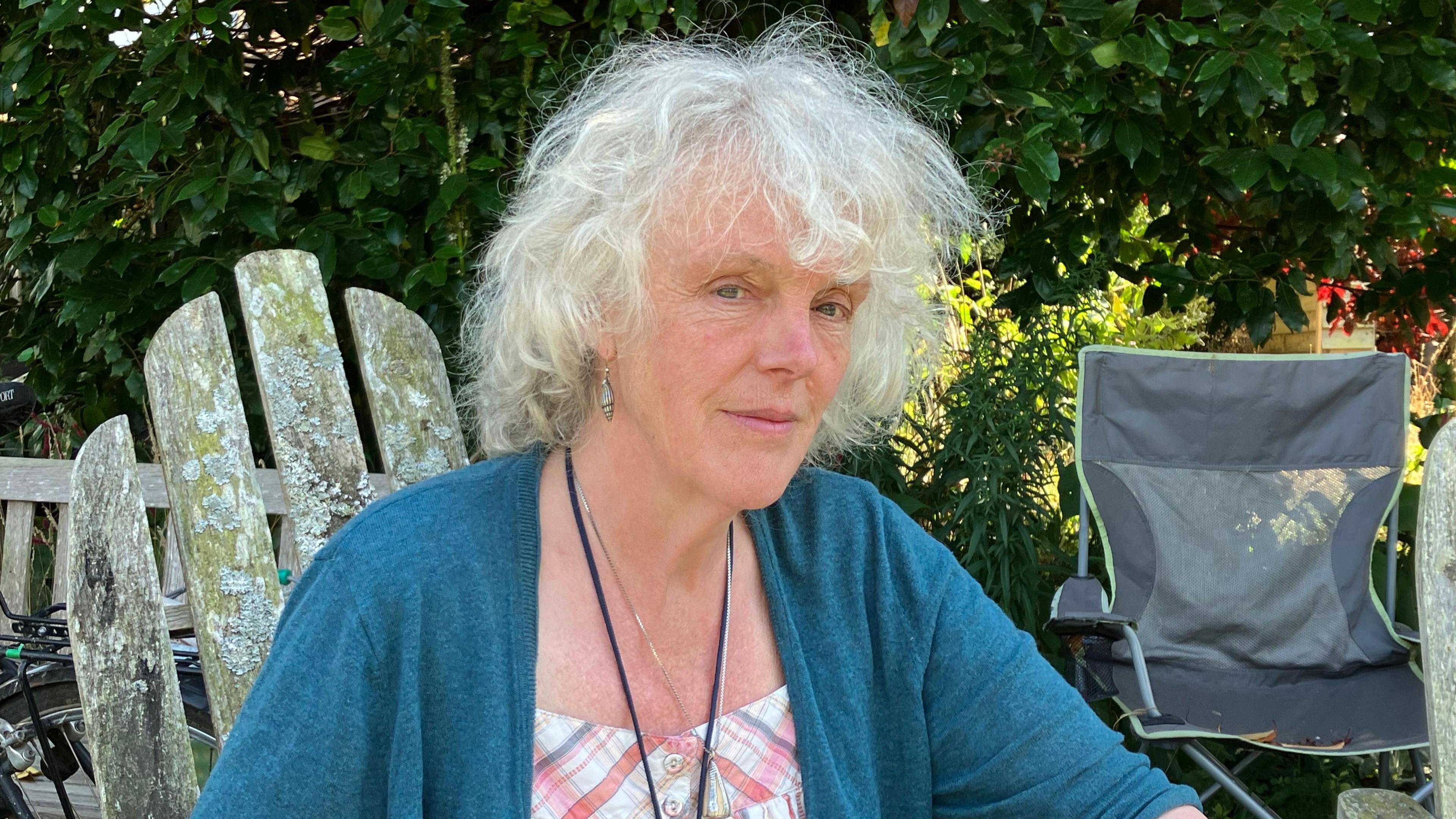Fears water rationing will hit firms' growth plans
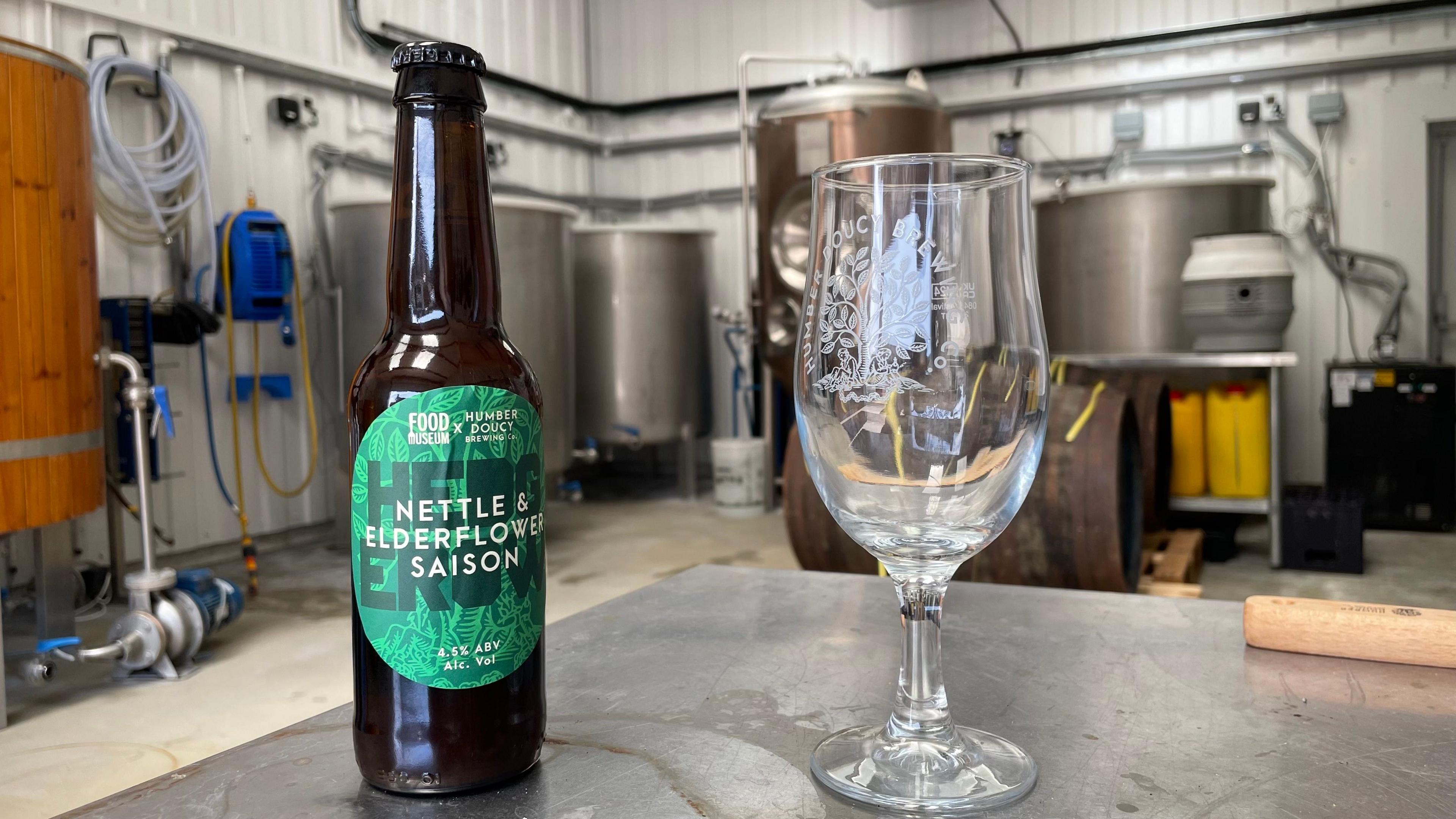
Suffolk's Humber Doucy Brewing Company is one of the companies told not to use more water
- Published
Businesses in a "seriously water-stressed" area have been told not to use any more water than they currently consume.
No new business connections will be approved in the zone, centred on the town of Eye in central Suffolk.
Firms were "carrying the burden of water rationing", according to one lobby group.
Essex & Suffolk Water said it was investing in new infrastructure and facing an "unprecedented" rise in population.
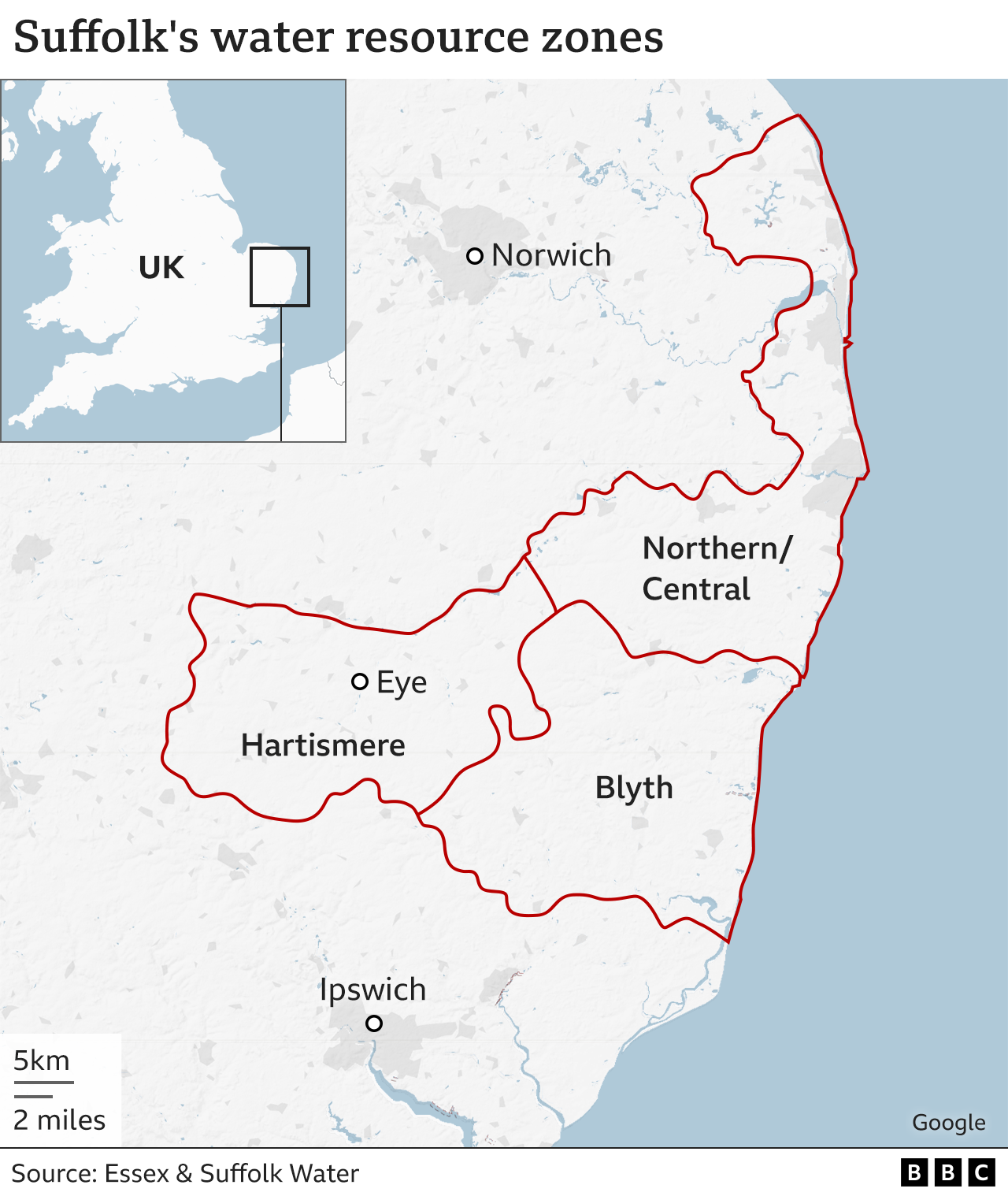
The company wrote to businesses in the Hartismere Water Resource Zone over the summer, informing them of the policy.
The "moratorium", the letter said, meant the water company would be "unable to agree" to "new mains water connections" for "non-domestic purposes".
It added that it would also not agree to "increase supplies" for existing business connections.
"Consequently, for the time being, you should not plan to increase your mains water use if it is for non-domestic purposes," the letter said.
The policy is due to last until 2033.
The BBC first reported on it in August last year. Since then businesses have been hearing how it may affect them.
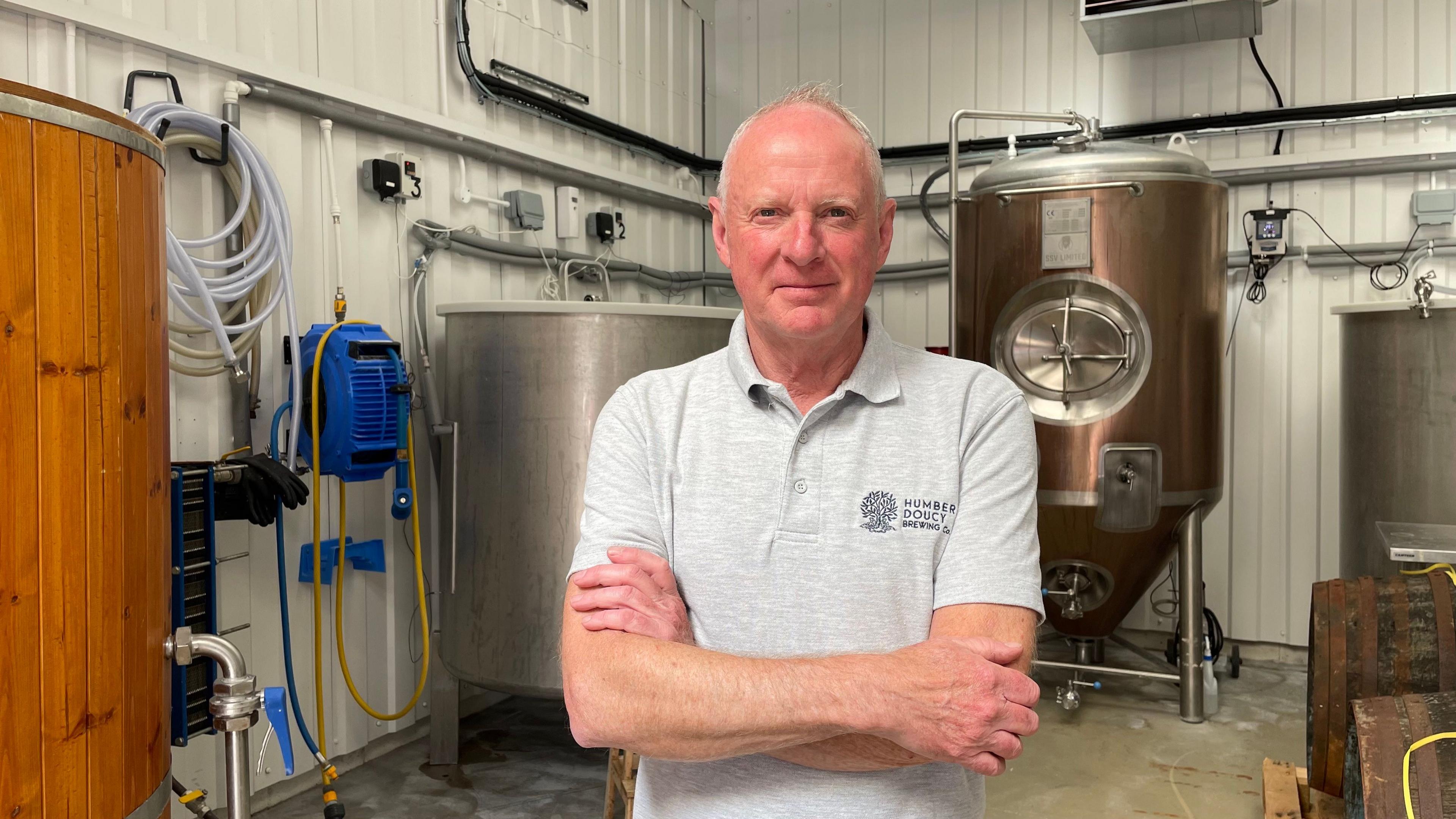
Alan Ridealgh said receiving the letter from the water company was "hugely concerning"
Alan Ridealgh, the co-owner of the Humber Doucy Brewing Company, based in Bacton, near Stowmarket, said the letter was a "shock".
Mr Ridealgh, 67, started the business with his son in 2019. He said it was "still in start-up phase" and was increasing production "weekly".
"Water is 99% of beer, so it's incredibly important.
"To be told you can't use any more water is devastating," he said.
The policy meant the company was faced with "closing down or moving".
It was, he added, "hugely concerning".
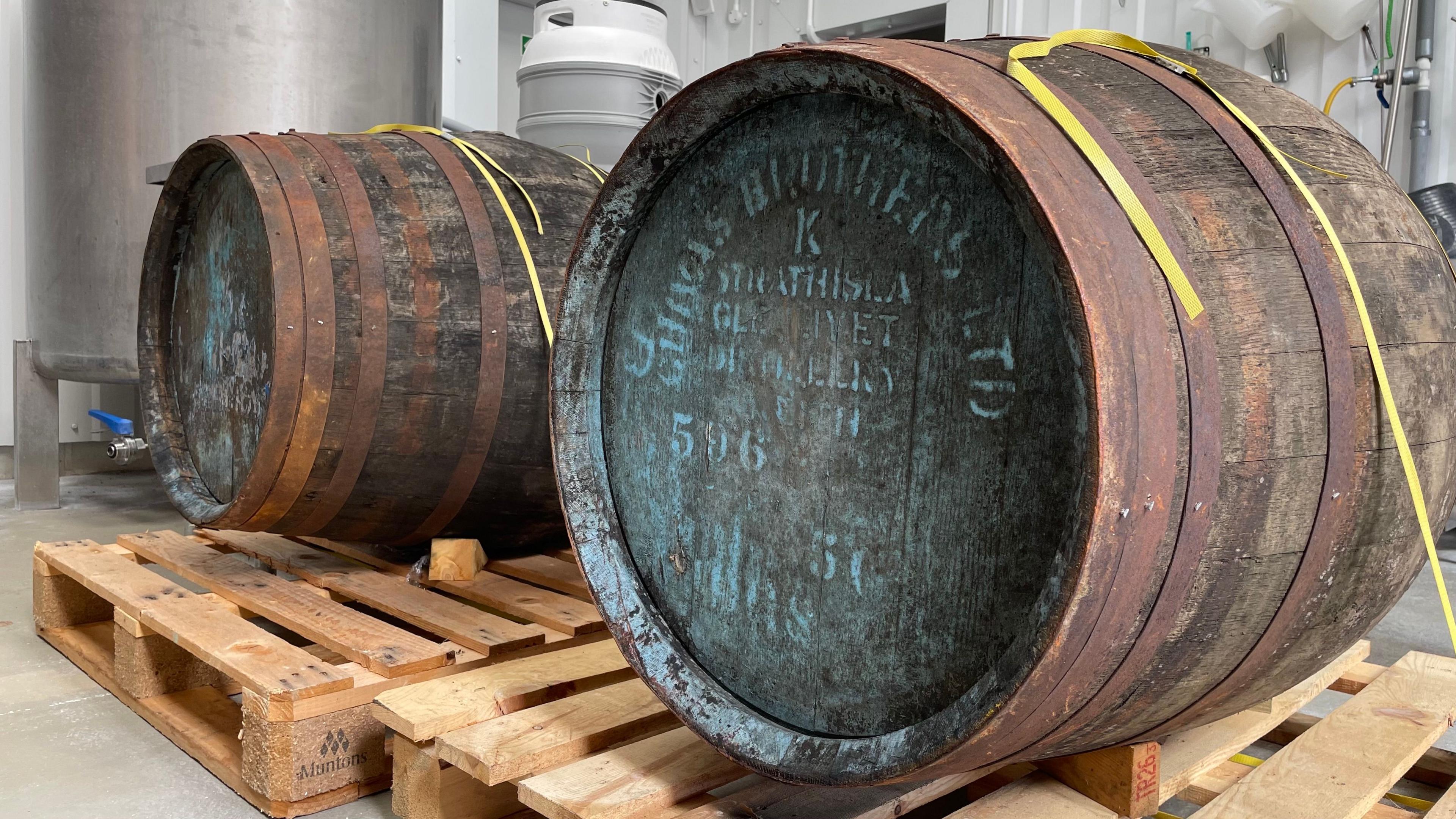
Humber Doucy had hoped to expand its business and brew more beer
"After this length of time we've put a lot of money into this business and a huge amount of effort.
"The fact that it's got to this stage is appalling."
Ryan Luke, the owner of Heart of Suffolk Distillery, also of Bacton, also received the letter.
He said growth plans were "at risk of being halted" because they would not be able to use more water.
"I think the reasons behind it are completely understandable - there is a shortage of water and we need to be quite mindful of that," he said.
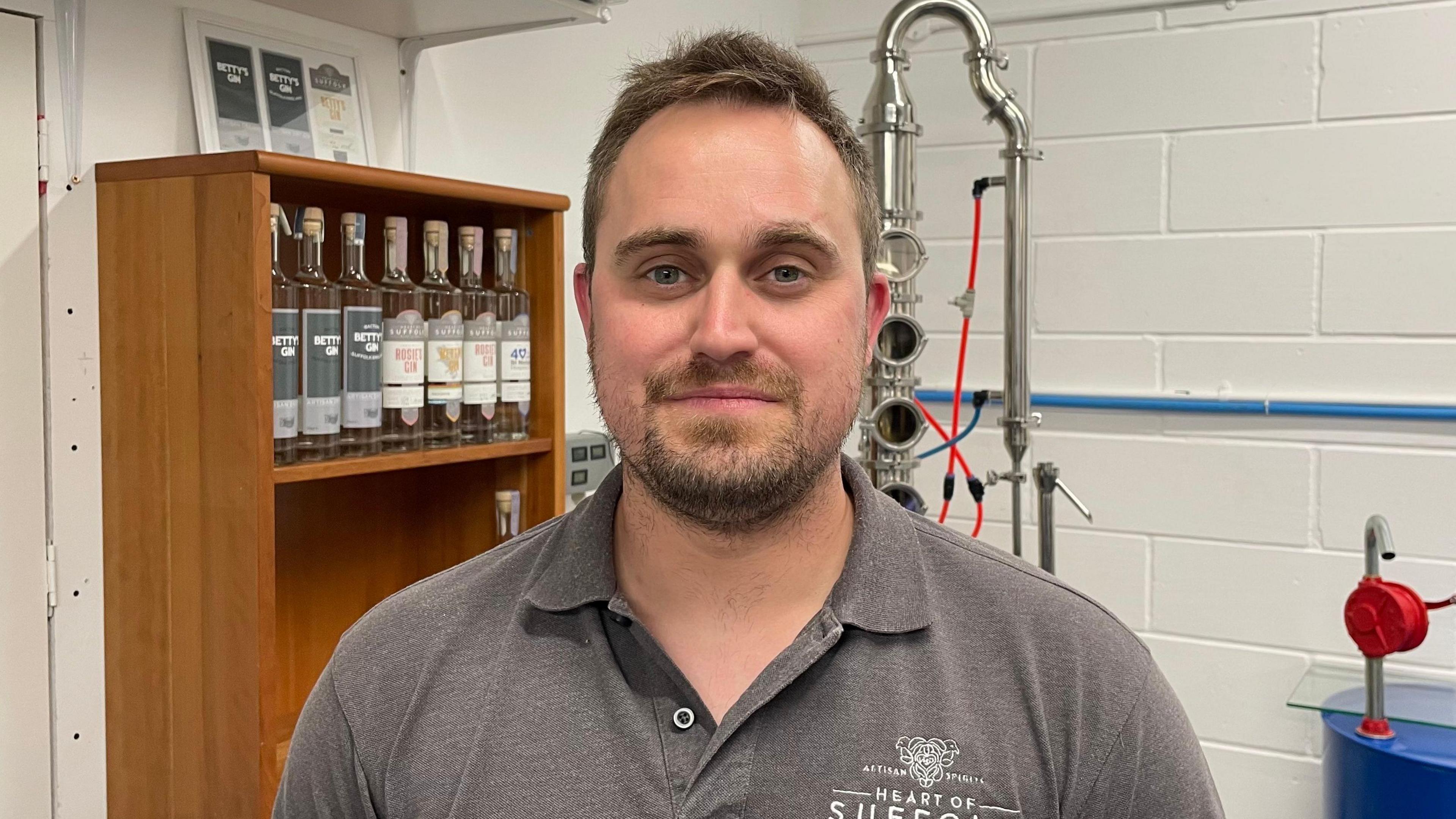
Ryan Luke owns the Heart of Suffolk Distillery and fears his plans to grow the company could be affected
But he added the "final nature" of the letter was a "bit of a kick to the system".
Mr Luke, 31, said he had looked into shipping additional water to the distillery but that did not seem to be a "sustainable" option and would have a "cost associated with it".
Cranswick Country Foods runs a poultry processing plant in Yaxley, near Eye, and wants to build an animal feed mill next door.
To get permission, it will have to show it can supply its own water.
Plans published by the company, external show it wants to dig its own reservoir 2.8km (1.7 miles) from the facility. That would be fed by water from the River Waveney, another 3.7km (2.2 miles) away.
The water would be used in the factory, treated and then piped into the River Dove.
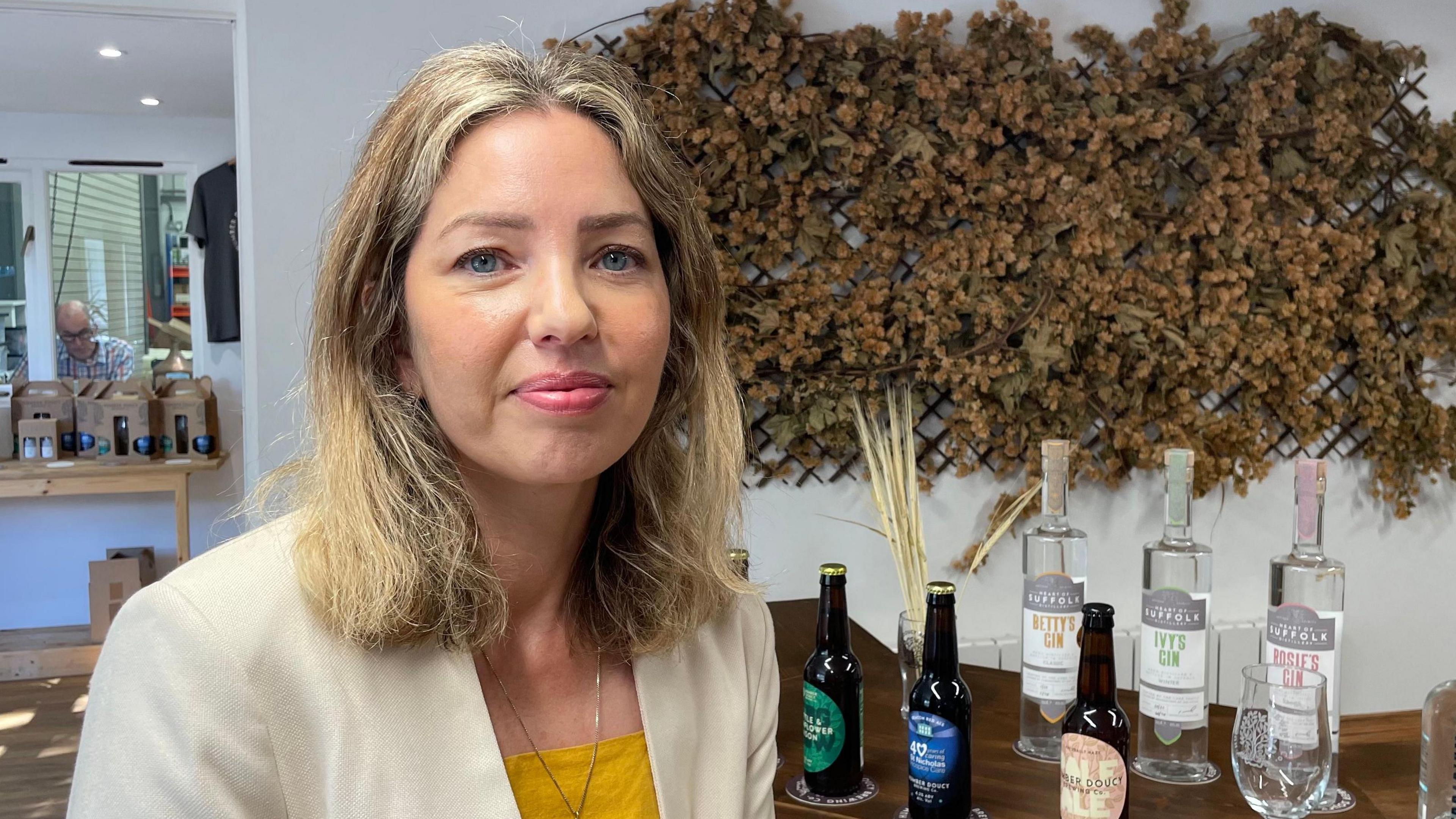
Candy Richards represents small businesses in the affected area
Cranswick would not say how much the proposals may cost but said it would need a "significant investment".
Candy Richards, from the Federation of Small Businesses, said for companies that plan "months and years" ahead, Essex & Suffolk Water's policy was "really worrying".
"It's incredibly worrying to think that actually we're in a position where water companies are having to ration water.
"But what we know is that for businesses there isn't the same level of protection as there is for households.
"So small businesses are essentially carrying the burden of water rationing."
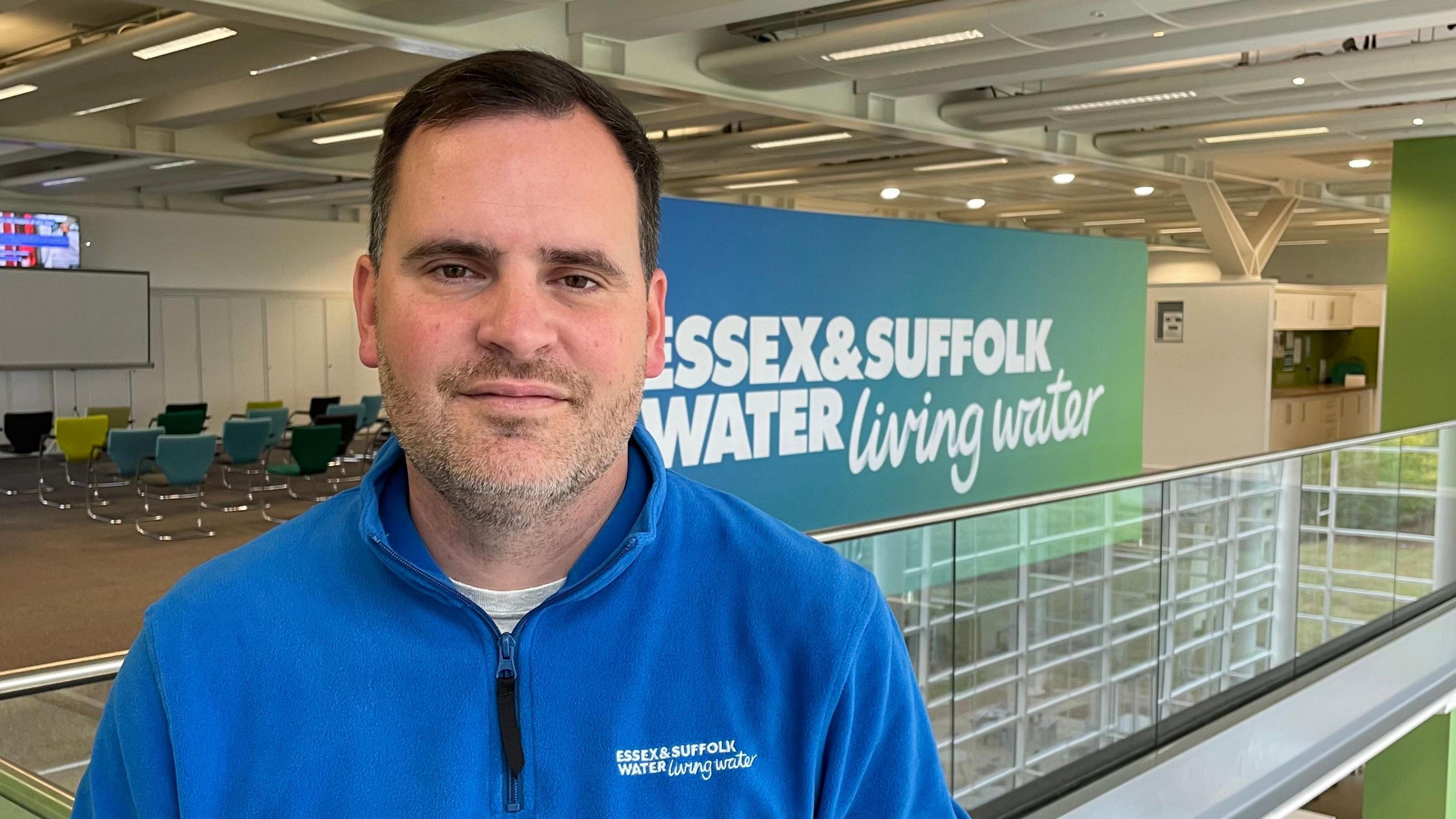
Kieran Ingram said Essex & Suffolk Water was "sympathetic" to businesses affected by the policy
The Environment Agency labelled the whole of the East of England as "seriously water stressed".
A plan, external published by Water Resources East in December said without "urgent action" the region "will face severe water shortages".
Essex & Suffolk Water said it was forecasting a 22% increase in its population over the next 25 years, which was around 5,000 extra people. Business demand was forecast to double in the Hartismere zone.
Kieran Ingram, the company's group water director, said: "When we looked at making sure have we got enough water for everyone, the answer is 'no', simply we don't."
He accepted the supplier was "prioritising domestic customers over businesses" because supplying to homes was a "life-essential service".
The company planned to invest £1.5bn in Essex and Suffolk between 2025 and 2030.
In Suffolk that will include new pipelines to connect up all the water resource zones, new storage reservoirs and a water reuse scheme near Lowestoft.
Mr Ingram said it was "unfortunate" that the "moratorium" could mean some businesses have to "explore other alternative solutions elsewhere".
"I understand that might mean they have to grow in other parts of the country for the moment," he said.
While Mr Ingram said the company was unlikely to police the new policy and that it "put a lot of trust into our customers", he added that it could see customers' water use through their meter readings.
He added the company was "sympathetic" and the policy would give it time to "build resilience into the future and make sure we can keep up with that growth".
"We want to see investment into the Essex and Suffolk region like everybody else does.
"We want to make sure we're working together to make sure that we can protect our water sources and we protect the environment, not only for today but into the future as well."
Listen: Water clamp down around Eye
Get in touch
Do you have a story suggestion for Suffolk?
Follow Suffolk news on BBC Sounds, Facebook, external, Instagram, external and X, external.
Related topics
- Published21 August 2023
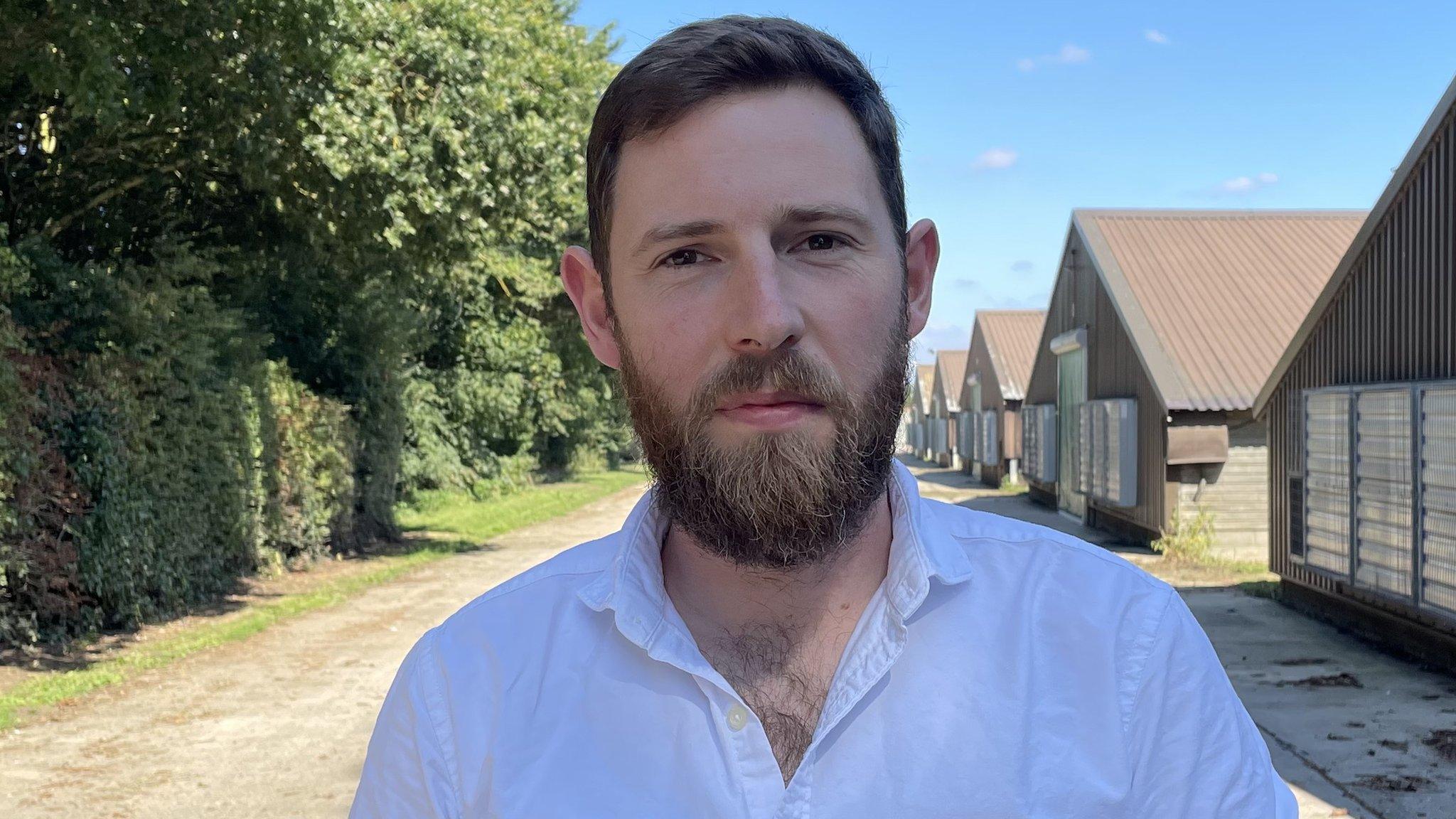
- Published29 April 2024
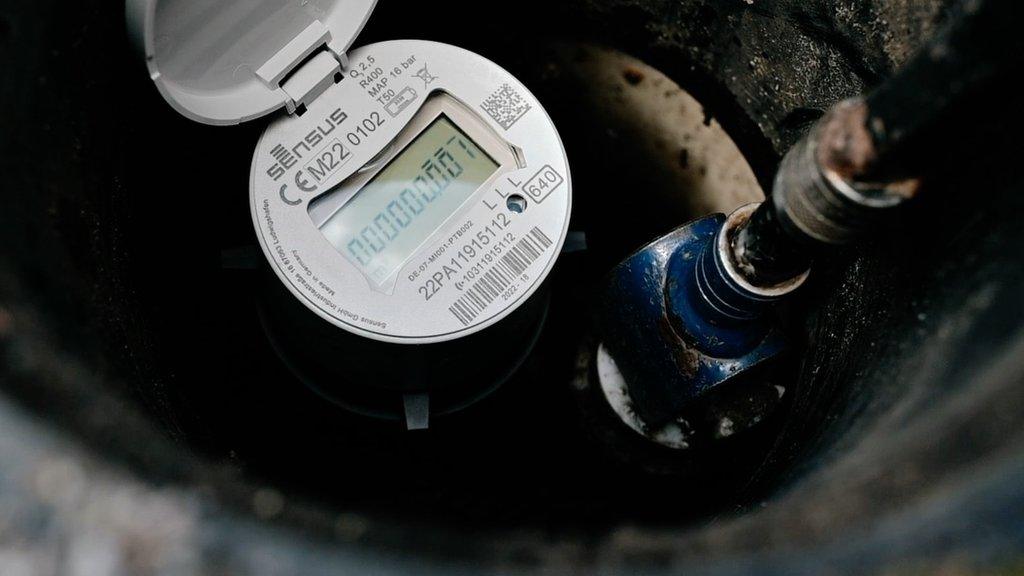
- Published13 August 2024
